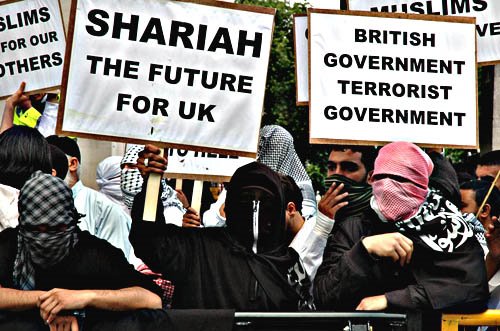http://larouchepub.com/other/1995/2241_ ... intro.html
'India has to go'
British staunch encouragement of the Kashmiri separatist movements is an open secret in New Delhi. Leading mouthpieces of the British oligarchy make no bones about their desire for the disintegration of the countries of the Indian subcontinent, particularly India.
For example, on May 26, 1991, only five days after the brutal assassination of former Indian Prime Minister Rajiv Gandhi, the Times of London, the premier voice for the British Foreign Office, put forward this view in an editorial entitled "Home Truths": "There are so many lessons to be learnt from sorrowing India, and most are being muttered too politely. The over-huge federation of almost 900 million people spreads across too many languages, cultures, religions, and castes. It has three times as many often incompatible and thus resentful people as the Soviet Union, which now faces the same bloody strains and ignored solutions as India....
"The way forward for India, as for the Soviet Union, will be to say a great prize can go to any States and sub-States that maintain order without murders and riots. They should be allowed to disregard Delhi's corrupt licensing restrictions, run their own economic policies, and bring in as much foreign investment and as many free-market principles as they like. Maybe India's richest course from the beginning would have been to split into 100 Hongkongs."
Or take Max Madden, presumably less "colonialist" being a Member of Parliament for the Labour Party. Speaking on June 2, 1993 at a conference on Kashmir in Denmark, Madden demanded India's self-annihilation: "I've always wondered why in a world where we've seen the British Empire disintegrate, the Russian empire disintegrate, why is it that alone of the great countries of the world—let's remember, by the end of this century, India will have the greatest population in the world—why it alone should be the Union of India and its present boundaries continue forever? I think there cannot be any immunity to India to the sort of pressures that we see in the rest of the world, and it might well be that the Constitution of India may be amended, there could be a new constitutional settlement in India.... We all hear from Indians that they have the largest democracy in the world; many of us question that very fundamentally."
Madden suggests that the United Nations oversee the transition phase for Kashmir's "independence," a role that could be extended to the entire region: "The United Nations has a legal and moral responsibility and obligation to secure the self-determination for the people of Kashmir. It may require a period of U.N. administration of Kashmir. So be it. And it may involve the whole region. So be it."
Timebombs left behind
British intelligence has not only the predisposition to foment separatist and terrorist operations through the South Asia region; it also has the capabilities. All of the major conflicts in the region are explosions along the fault lines deliberately left as the legacy of direct British colonial rule:
The Kashmir dispute arose out of the British-instigated 1947 partitioning of the Indian subcontinent to form the Muslim-majority Pakistan, the same maneuver that created the Mohajirs, Indian Muslims who migrated to Pakistan at that time, and thus laid the basis for the ongoing conflicts in Karachi, Pakistan and the creation of the Mohajir Quam Movement (see below).
To the south, the "Tamil problem" was foisted on Buddhist and Christian Sri Lanka, when the British brought Hindu workers over from Tamil Nadu in southern India, to work on British colonials' lucrative tea plantations. Although the British used the Tamils as virtual slaves, they also ensured that handpicked Tamils would dominate the colonial bureaucracy. At the point of independence for Sri Lanka, the British-revived Buddhist chauvinists demanded an enemy, and the enemy was the Tamils, not the British. Thus, the Liberation Tigers of Tamil Eelam (LTTE, or Tamil Tigers, see below), are the product of a conflict induced by British colonialism.
In Northeast India, the cauldron of contending ethnic entities—all mixed up together in the drugs-for-arms trafficking—stems directly from the British division of Bengal, which led finally to the creation of Bangladesh, and a strict colonial policy of apartheid between "tribals" and "non-tribals."

